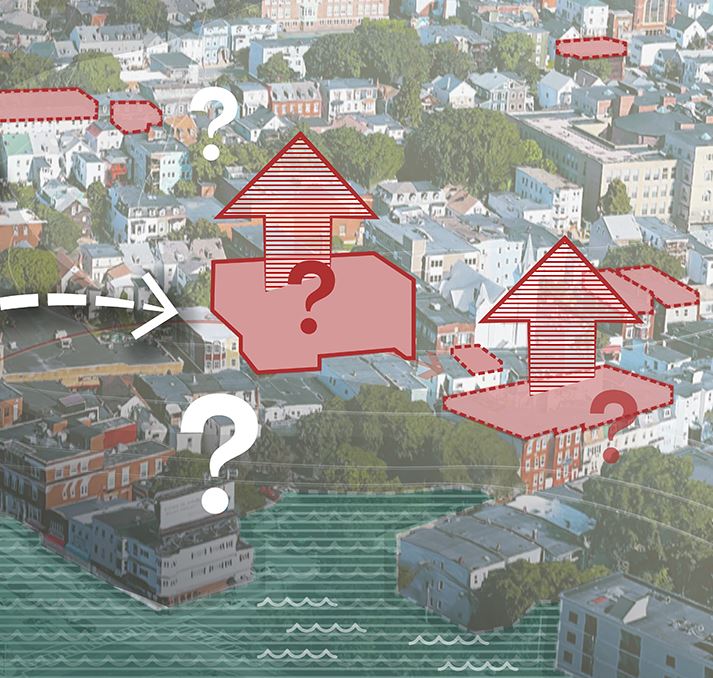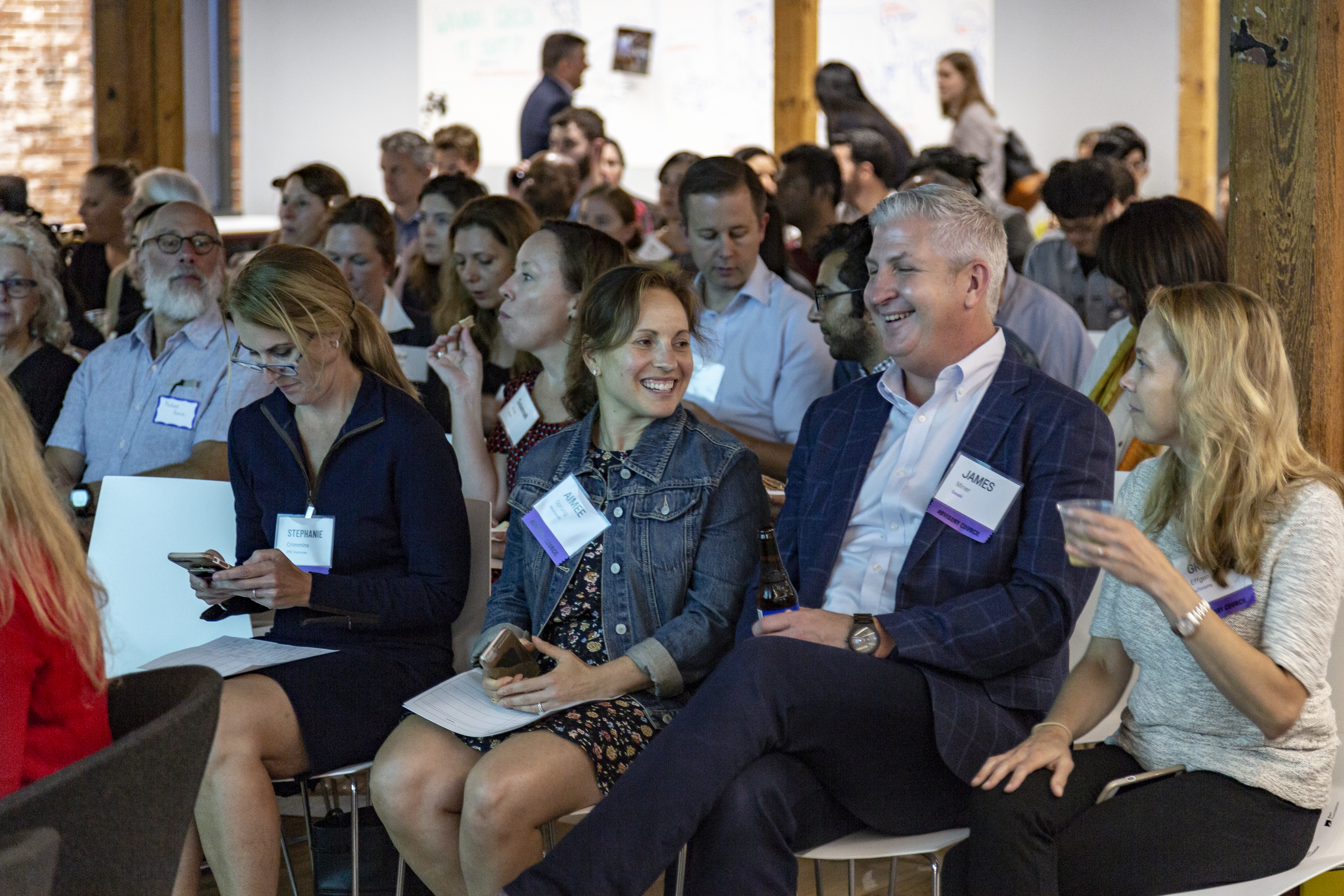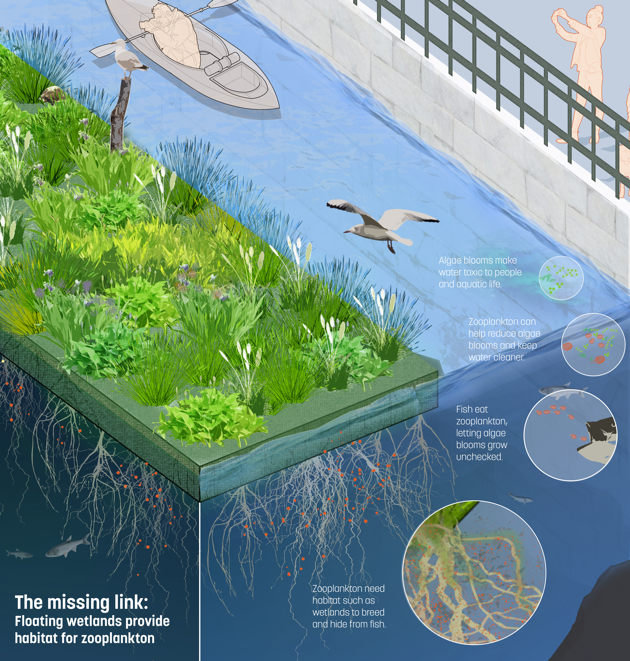Please Touch the Art
in partnership with Sasaki
Our 2019 call for proposals is now closed—thank you to all our applicants. Learn more about the 2019 winners and finalists, and stay tuned for our 2020 call for proposals in late February.
Sasaki Foundation
We leverage design to tackle global challenges—especially those that adversely affect certain communities.
Call for Proposals
If you have ideas on how to tackle climate adaptation, housing or transit inequities or displacement of residents, or how to foster community building, apply today for one of our resilience design grants.
The deadline to apply is May 10, 2019.
See 2018 Design Grants winners here.
Grants
We will award up to 6 grants of $15,000 each to winning teams.
Grants include time in the Incubator at Sasaki—an open and collaborative shared studio space for innovators—and access to design expertise from Sasaki professionals.
We Need You
No matter who you are, we need your skills.
We are looking for interdisciplinary, creative approaches to test new design concepts that address complex challenges in our communities.
“What usually aids in the intelligent flowering of the design is the success of the collaborative effort of all.”
—Hideo Sasaki, 1953
The call for proposals
How can we help all communities to be proactive and to grow?
Resilient communities are strong communities. Unfortunately, some communities—especially those that are primarily people of color or historically low-income—are disproportionately impacted by environmental, economic, and social challenges. And yet, when steps are made to design the built environment in these areas, the voices of these communities are often left out of the process.
While these issues are felt throughout the world, some of the most impacted communities are right here in Massachusetts. We are therefore seeking projects that engage communities in Greater Boston, Metro West, and Gateway Cities.

Eastie for Eastie
in partnership with Sasaki
1
Proactive Approaches to Climate Adaptation
Responses to extreme heat, stormwater and flash flooding, and coastal and river flooding. In cities like Boston, these issues—especially the urban heat island effect and flood risk—disproportionately impact communities of color and low-income communities.
- How can investments in climate resilience do more to meet the environmental and social resilience needs of Greater Boston’s neighborhoods?
- How can we increase local awareness of planning and designing for resilience and inform systems-level approaches to climate risks and solutions?
- How can we model best practices for reducing carbon emissions, increasing building energy efficiency, and improving urban stormwater management?
2
New Models for Housing
Strategies to improve housing affordability, promote a more diverse housing stock, and address gentrification and displacement. Displacement of families, caused by economic and environmental forces, is exacerbated by the limited supply of affordable, family-oriented housing units.
- How can we improve public health through new housing ideas?
- What strategies can help keep residents in their communities (e.g., community land trusts, zoning, accessory dwelling units, re-parcellation of land)?
- What building-scale strategies can be created to accommodate sea level rise in a way that benefits and educates communities and residents?
3
Innovation in Transit and Access to Mobility Choices
Design strategies and solutions for existing challenges to reliable transit; strengthened public-private partnerships in expanding transportation choices and leveraging technology to provide greater access to transportation options by eliminating barriers. We seek methods for leveraging private-sector innovation to increase access to transportation services for all communities.
- How can communities of color and low-income communities gain better access to transportation choices and connected transportation networks (car/ride/bike-share, bicycle lanes, rapid transit lines, on-demand transport)?
- How could better access to technology improve mobility for your community?
- How can transportation solutions be applied in new ways to make communities more resilient?
4
Creative Community Building
Themes of collective memory and community storytelling, investment in historic neighborhood fabric, and local business development. Our interests extend beyond the concept of placemaking to include the idea of placekeeping—the preservation of local identity through strengthening social bonds, celebrating neighborhood history, and developing strategies for enhancing neighborhood retail, food, and health services.
- How do we maintain authenticity while reinvigorating the social and economic well-being of a given community?
- What are creative opportunities for adaptive reuse of buildings or vacant lots to enrich communities?
- How can we build local capacity for economic development and promote local entrepreneurship?
Evaluation Criteria
1
Design
We want to pursue interdisciplinary thinking and challenge the status quo. We seek design ideas that will do something for the community and engage stakeholders in the results. Winning teams will have actionable ideas, and proposals will be judged on both their creativity and their feasibility. Proposals should also address resiliency and equity through one of the four topic areas discussed in Section 04.
2
Equity
We are looking for proposals that benefit historically underrepresented communities through strategies aimed at eliminating systematic obstacles. Winning teams will show how their projects meet the unique needs of a community through a high level of collaboration with community representatives.
3
Inclusion
We value a variety of voices and seek to address inequities related to identity. We especially encourage proposals from women; transgender, genderqueer, or gender non-conforming individuals; members of racial or ethnic minorities; and individuals with physical and/or intellectual disabilities.
4
Innovation
Proposals will be judged on their innovation, creativity, and multidisciplinary approach. Special attention will be given to teams that propose proactive, rather than reactive, concepts and ideas.
5
Impact
Proposals will be evaluated based on their potential for impact within the community they are looking to serve. Winning projects will exhibit scalability or replicability across other communities with similar characteristics.
Judges
Our judges are representatives from design, transit, housing, and environmental organizations.

Pitch Night 2018
Incubator at Sasaki
Program Guidelines
Incubator and Access to Sasaki Designers
During the 9-month residency, winning teams will spend dedicated time in the Incubator at Sasaki located on the Chase Mills campus, home to Sasaki—an award-winning international design firm. The Incubator cultivates a network of ambitious people committed to advancing solutions to the major challenges our generation faces, of which the grantee cohort is a part.
Teams will have opportunities to connect with Sasaki design professionals including architects, civil engineers, graphic designers, interior designers, landscape architects, planners, urban designers, and data analytics and visualization experts. Teams may also benefit from Sasaki’s FabLab and design software.
Community Focus
Equity is one of the cornerstones of the Sasaki Foundation’s research, and all winning proposals must have a community focus. A community advisor (local leader, non-profit professional, designer, artist, business leader, or other individual) from the community on which the project focuses is required to be an active member of the team.

ECHOLocator design charrette with Sasaki
Incubator at Sasaki

G|Code House design charrette with Sasaki
Incubator at Sasaki
Team Approach
Applicants must be teams of two to four individuals. One of these individuals must be from the community in which the project is based. Teams may consist of either individuals or representatives of nonprofits, civic, and community organizations coming together for the purpose of this proposal. We encourage teams to be multidisciplinary in their composition and thinking.
Storytelling
Teams are expected to create a compelling narrative describing how their design ideas or projects meet the specific needs of their community. Part of the narrative will include a plan for outreach and engagement for their focus community.
Deliverables
Applicants will submit a plan of work, including projected use of funds and total projected budget. Winning teams will meet with the Foundation regularly to review their progress, including a mid-grant and final presentation. Teams will also create a visual final deliverable that will be featured on the Sasaki Foundation’s website.
Open Source
To ensure the dissemination of the strategies generated through this effort, teams will commit to their project concepts and ideas being open source. Winning teams will focus on the development of design-thinking methods and digital tools that can help stimulate communities’ abilities to express themselves and their needs, with an emphasis on collaboration and co-production.

Floating Wetland Concept
Charles River Floating Wetland in partnership with Sasaki
What to Expect
Each team will collectively spend a minimum of 10 hours per week in the Incubator.
Teams will benefit from proximity to Sasaki’s design professionals and technology, as well as the rest of the grantee cohort and the Incubator’s growing community. The cohort will have regular access to Sasaki collaborators for project guidance.
“G|Code House is honored to be a part of this inaugural Design Grants cohort and its mission to include equity and inclusion in planning and design. It takes a village to do this work that we hope will be impactful and life-changing.”
— Bridgette Wallace, G|Code House, 2018-2019 Design Grants cohort team
Teams will participate in the following:
- Monthly lunch and learns with Sasaki designers that will help shape the projects
- Quarterly Sasaki Foundation Speaker Series with experts in the four focus areas
- Design charrettes with Sasaki professionals to help advance the projects
Teams will deliver the following:
- Project work plan and projected budget
- Short weekly reports
- Mid-grant presentation, including visuals
- Final presentation, including visuals
- Executive summary of project outcomes (available as open source on the Foundation website)
Timeline: 2019
February 25
Call for Proposals issued — rolling submissions
March 7
Community Open House in Brighton
March 14
Community Open House in Watertown
March 20
Community Open House in Roxbury
March 27
Open House for Applicants in the Incubator at Sasaki
May 10
Deadline to submit applications
May 29
Finalists announced
June 5
Pitch night for finalists in the Incubator at Sasaki
June 26
Grant winners notified and announced
September 2019 – June 2020
Grant winners take residency in the Incubator at Sasaki
Questions
Social Media
Open Houses & Pitch Night
An Open House for applicants will be held on Wednesday, March 27 from 5:00 to 7:00 p.m. in the Incubator at Sasaki.
Additional hour-long open houses will be held in several communities:
- Thursday, March 7, at 5:30 p.m. at the BPL Brighton Branch
- Thursday, March 14, at 5:30 p.m. at Eastern Bank in Watertown
- Wednesday, March 20, at 12:30 p.m. at the BPL Egleston Square Branch
